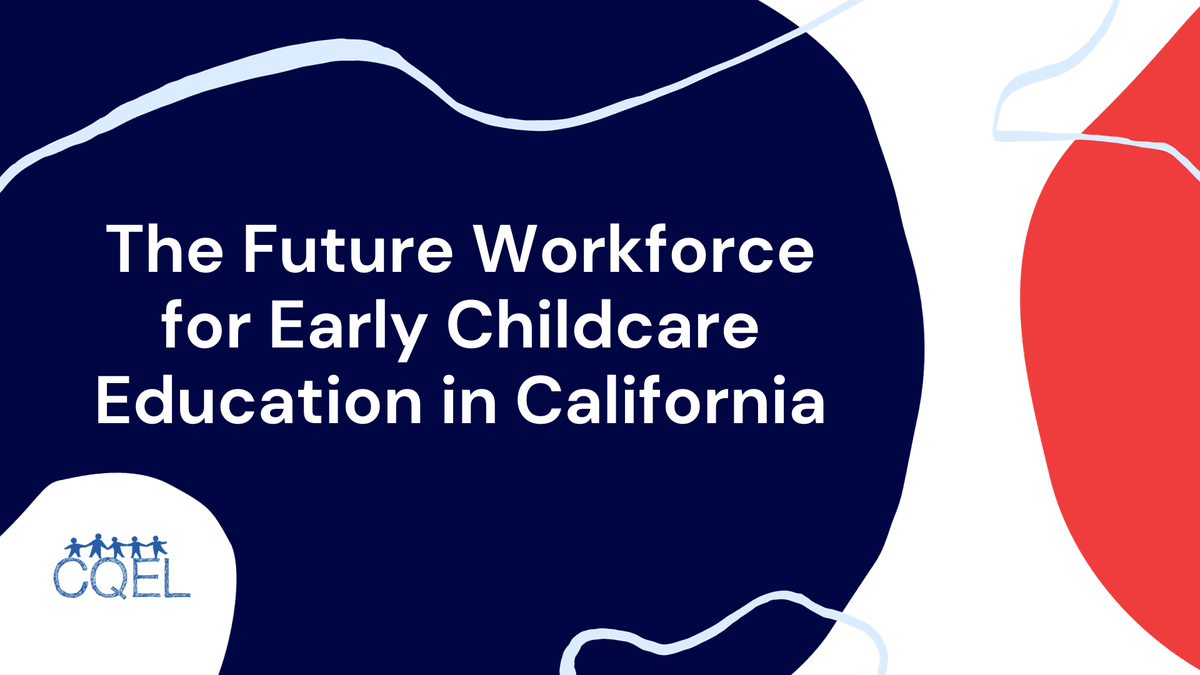The Future Workforce for Early Childhood Education in California
Early childhood education (ECE) is essential for preparing children for success in the future workforce. Research has shown that children who participate in high-quality ECE programs are more likely to succeed in school and in their careers.

Early childhood education (ECE) is essential for preparing children for success in the future workforce. Research has shown that children who participate in high-quality ECE programs are more likely to succeed in school and in their careers. They are also more likely to develop the 21st-century skills that are essential for success in the global economy, such as critical thinking, problem-solving, and collaboration.
Aspiring childcare providers in California play a vital role in building the future workforce by providing high-quality ECE. There are a number of resources available to help them succeed.
The Importance of Early Childhood Education for Workforce Development
According to a report by Child Trends, "high-quality early childhood education can help to close the achievement gap between children from low-income families and those from higher-income families." The report also found that "children who participate in high-quality early childhood education programs are more likely to graduate from high school and attend college."
A blog post by the Center for American Progress discusses the importance of ECE for workforce development and provides specific examples of how ECE programs can support workforce readiness. For example, the article mentions that ECE programs can help children develop early literacy and numeracy skills, which are essential for success in school and in the workplace. ECE programs can also help children develop social-emotional skills, such as self-control and perseverance, which are also important for success in school and in the workplace.
How to Create an Early Childhood Learning Environment that Supports Workforce Readiness
The California Early Childhood Workforce Registry provides a framework for workforce competencies for early childhood educators. This framework outlines the competencies that early childhood educators need to have in order to support children's workforce readiness, such as the ability to:
- Create a learning environment that is supportive and inclusive of all children
- Use evidence-based practices to teach children
- Assess children's learning and development
- Partner with families to support children's learning at home
CQEL (Californians for Quality Early Learning) is a nonprofit organization that supports and advances the profession of providing quality early childhood education. CQEL helps early childhood education providers in California to create learning environments that support children's learning and development in all domains, including workforce readiness.
Strategies for Engaging Families in Workforce Development
A report by the Center for the Study of Child Care Employment discusses the importance of family engagement in workforce development. The report found that "family engagement can help to improve children's outcomes, both in the short-term and the long-term." The report also provides specific strategies for early childhood educators to engage families in workforce development, such as:
- Providing families with information about workforce development opportunities
- Connecting families with resources and services that can help them to prepare for work
- Engaging families in activities that support their children's learning at home
The National Child Care Association also provides a toolkit for early childhood educators to support family engagement in workforce development. The toolkit includes resources such as:
- A family engagement plan template
- A list of workforce development resources for families
- Tips for communicating with families about workforce development
Resources for Professional Development on Workforce Development in Early Childhood Education
The California Child Care Resource and Referral Network (CCRRN) provides a list of training workshops and online courses on workforce development in early childhood education. These courses cover a variety of topics, such as:
- How to create a workforce development curriculum for young children
- How to engage families in workforce development
- How to promote diversity and inclusion in the early childhood workforce
The California Department of Education also provides resources on workforce development in early childhood education, including the California Early Childhood Technology Framework. This framework provides guidance on how to use technology to support children's learning and development, including workforce readiness.
Tips for Promoting Diversity and Inclusion in the Early Childhood Workforce
The National Child Development Association provides a webpage with resources for early childhood educators to promote diversity and inclusion in their classrooms and workplaces. These resources include:
- Tips for recruiting and hiring a diverse workforce
- Tips for creating a welcoming and inclusive work environment
- Tips for providing training on cultural responsiveness
The National Association for the Education of Young Children also provides a webpage with anti-bias education resources for early childhood educators. These resources include:
- Tips for teaching children about diversity and inclusion
- Books and other resources for children about diversity and inclusion
Early childhood education is essential for preparing children for success while also supporting those in that workforce. Aspiring childcare providers in California play a vital role in building the future workforce by providing high-quality ECE. There are a number of resources available to help them succeed, including training on workforce development, family engagement, and diversity and inclusion.
